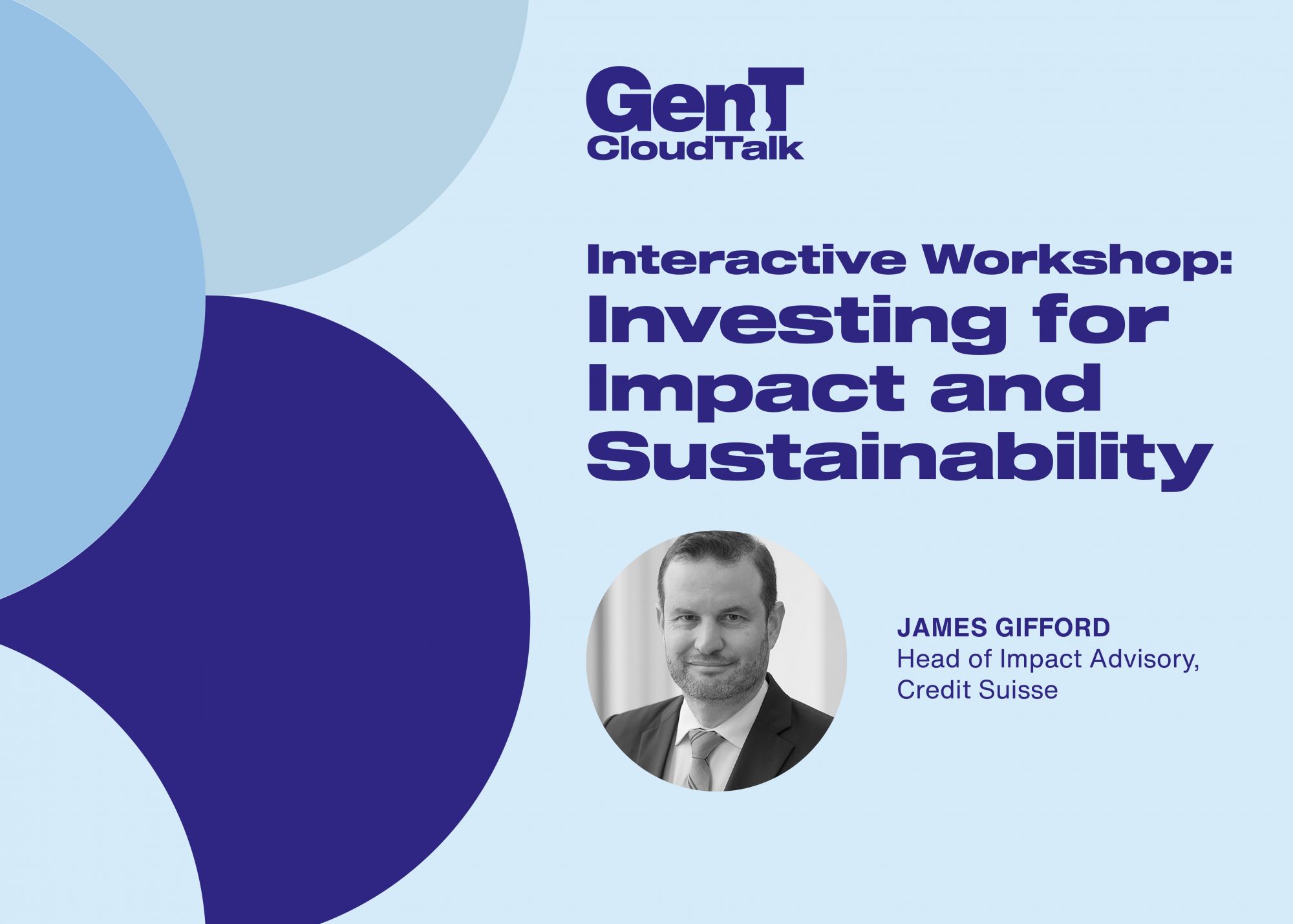Our latest Cloud Talk on January 22 took the form of an interactive workshop and examined the topic of sustainable investment, why it matters and how to maximise its impact
For the January 22 edition of Cloud Talk, Gen.T dived deep into the topic of sustainable investment. From spotting performance potential to how to build an investment portfolio with real-world positive impact, these questions and more were addressed during an interactive workshop led by Dr James Gifford, who is the head of impact advisory for Credit Suisse.
The Speaker
In his role as head of impact advisory for Credit Suisse, Dr James Gifford works closely with clients and advisors of the bank to mobilise capital into impact investing. His experience also extends into education, where he teaches a joint programme by Harvard Kennedy School and the University of Zurich for high-net-worth individuals, particularly next-generation family business leaders. The founding executive director of the UN Principles for Responsible Investment, which he led until 2013, he has also published numerous articles and book chapters on responsible investment.
Here are some key takeaways from the session.

Defining Sustainable Investing
Sustainable investing directs investment capital to companies that typically seek to tackle social and environmental issues, such as poverty and climate change, while promoting corporate responsibility. There are several sustainable investment approaches, including exclusions, ESG integration, thematic investing and impact investing.
Exclusions tend to be about morals, said Dr Gifford. It sees investors avoiding "unethical" sectors such as tobacco, alcohol and pornography. With ESG, or Environmental, Social and Governance integration, "there's a particular focus on the materiality of sustainability issues", where investors take into account the sustainability performance of a company.
See also: What You Missed At Gen.T Stream: Creating Social Impact In A Post-Covid World
Thematic and impact investing are about "solving problems and investing in companies that have solutions to problems". This could mean investing in an agri-tech, ed-tech or health-tech company that is directly improving the lives of underserved communities.
Dr Gifford adds that while ESG integration focuses on investing in "normal" companies like Microsoft or Unilever, which often tend to be large-cap or highly rated companies from a corporate governance perspective, thematic and impact investing focus on companies that are directly solving problems. "Impact investments are also illiquid in nature, as your money literally goes into the bank account of the company you're investing in and directly funds its growth."
